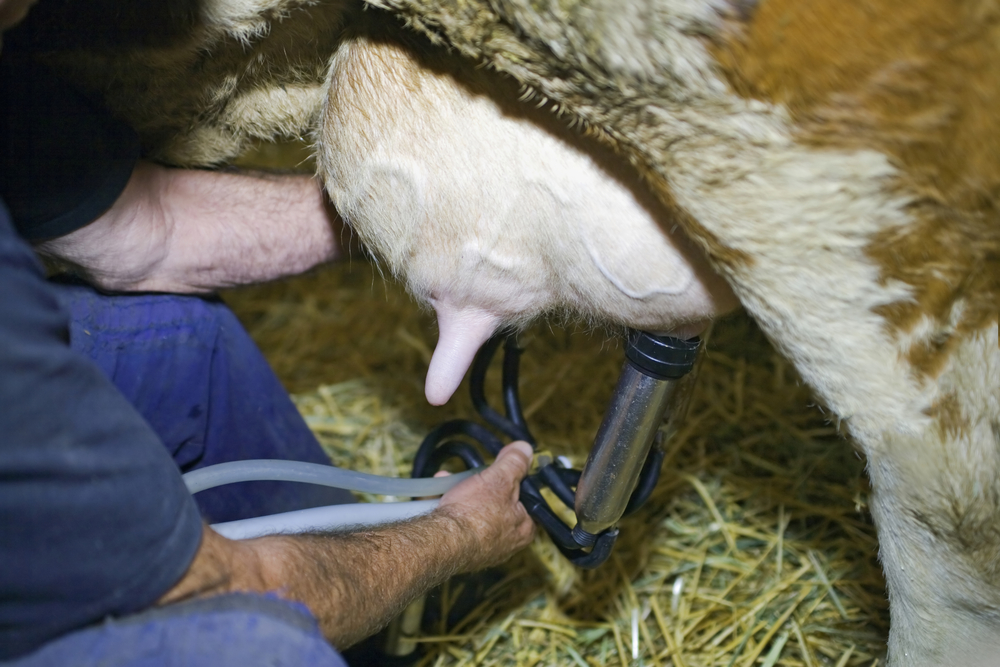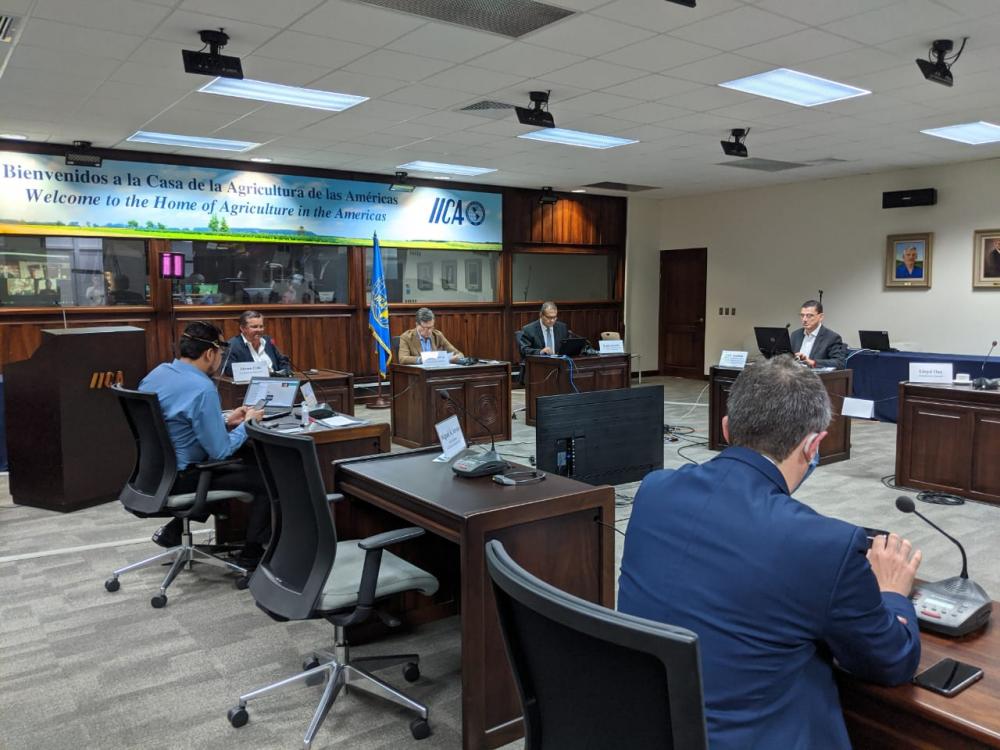Government officials and experts participated in a public-private dialogue sponsored by IICA to foster the development of policies and cooperation actions to respond to the current health crisis.

San Jose, 4 June 2020 (IICA). Senior government officials and representatives of the dairy sector in the Americas participated in a public-private dialogue sponsored by the Inter-American Institute for Cooperation on Agriculture (IICA), to foster the development of policies and cooperation actions in the different regions in response to the Covid-19 crisis.
The meeting, which provided an opportunity to discuss the challenges facing the sector, included the participation of government officials, industry experts and a panel made up of Carlos María Uriarte, Minister of Livestock, Agriculture and Fisheries of Uruguay; Miguel García Winder, Undersecretary of Agriculture and Rural Development of Mexico; Daniel Pelegrina, President of the Pan American Dairy Federation (FEPALE); and Ramiro Pérez, member of the Board of Directors of the Central American Dairy Sector Federation (FECALAC).
Minister Uriarte highlighted the fact that there have been no Covid-19 infections in Uruguay’s dairy sector, which exports 70% of its dairy products. He noted, however, that measures have been adopted to support companies and employees. Although the pandemic has had a mild impact, he believes it will change consumers’ attitude.
“We will become more interested in what we eat and change the way in which we interact with one another, as we become increasingly aware of the fact that we are all equal under the current circumstances”, explained the Uruguayan minister. At the international level, “market access will continue to be a concern”, particularly given the temporary closure of the Chinese market due to the pandemic.
The Director General of IICA, Manuel Otero, stated that “we are facing a systemic crisis—the most significant one over the past 100 years, and the dairy chain is not exempt from its impact. The only way forward is to emerge stronger form this crisis, with more flexible institutions and greater social and environmental sensitivity”.
In response to several concerns raised by the participants, Otero offered IICA’s support and recommended conducting a comprehensive analysis of all public policies for the dairy sector, in order to make dairy farming more environmentally friendly and sustainable.
“It is important that we avoid excessive regulation of health policies, which can isolate countries from one another, given that international aid will be more limited”, he cautioned. “If we don’t help ourselves, nobody will. We must renew our solidarity, join efforts and believe, now more than ever, in public-private partnerships”, he remarked.
García Winder, on the other hand, noted that “we cannot maintain large herds without increasing productivity”, and stressed that in Mexico, which is one of the top dairy producers in Latin America, the dairy industry was already undergoing a transformation prior to Covid-19.

“The pandemic is accelerating this process and will encourage us to consider new possibilities. Once we overcome this crisis, the worst thing we could do is to return to the previous reality. We have a tremendous responsibility to develop truly inclusive policies”, he stated.
“We will require innovations. We must boost productivity and income for producers, as well as define how to address environmental issues, which is an increasingly pressing matter”, he added.
Daniel Pelegrina considered that it is important to promote the consumption of milk for health and well-being in a region with more than 600 million consumers, where most countries fall below the consumption levels recommended by health authorities.
Pérez echoed this concern. “We must implement actions to communicate more directly with urban consumers, millennials and the younger generations, to inform them of the nutritional benefits and health effects of dairy products. We must also make dairy farming more environmentally friendly and create differentiated products that allow consumers to see the face behind the products. All of this would enable us to begin mitigating the negative effects of Covid-19”, stated the FECALAC executive.
He also expressed concern over the devaluation of currencies across the region, as well as health measures, which he described as “extremely lax in some cases”. With respect to the latter issue, he cited the use of substitutes in milk, and noted that FECALAC has been working together with IICA to increase consumer awareness of this matter.
More information:
Institutional Communication Division of IICA
comunicacion.institucional@iica.int











